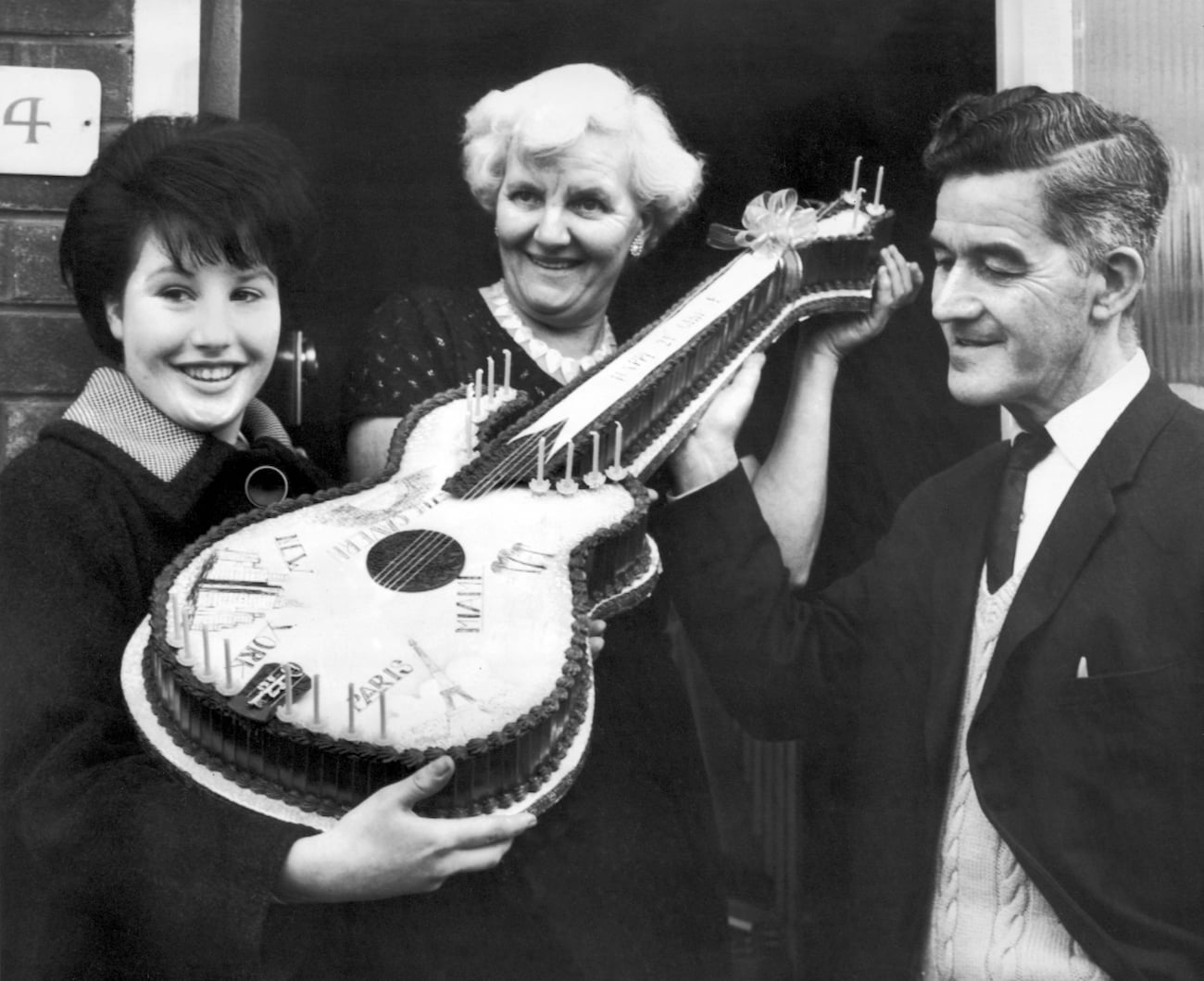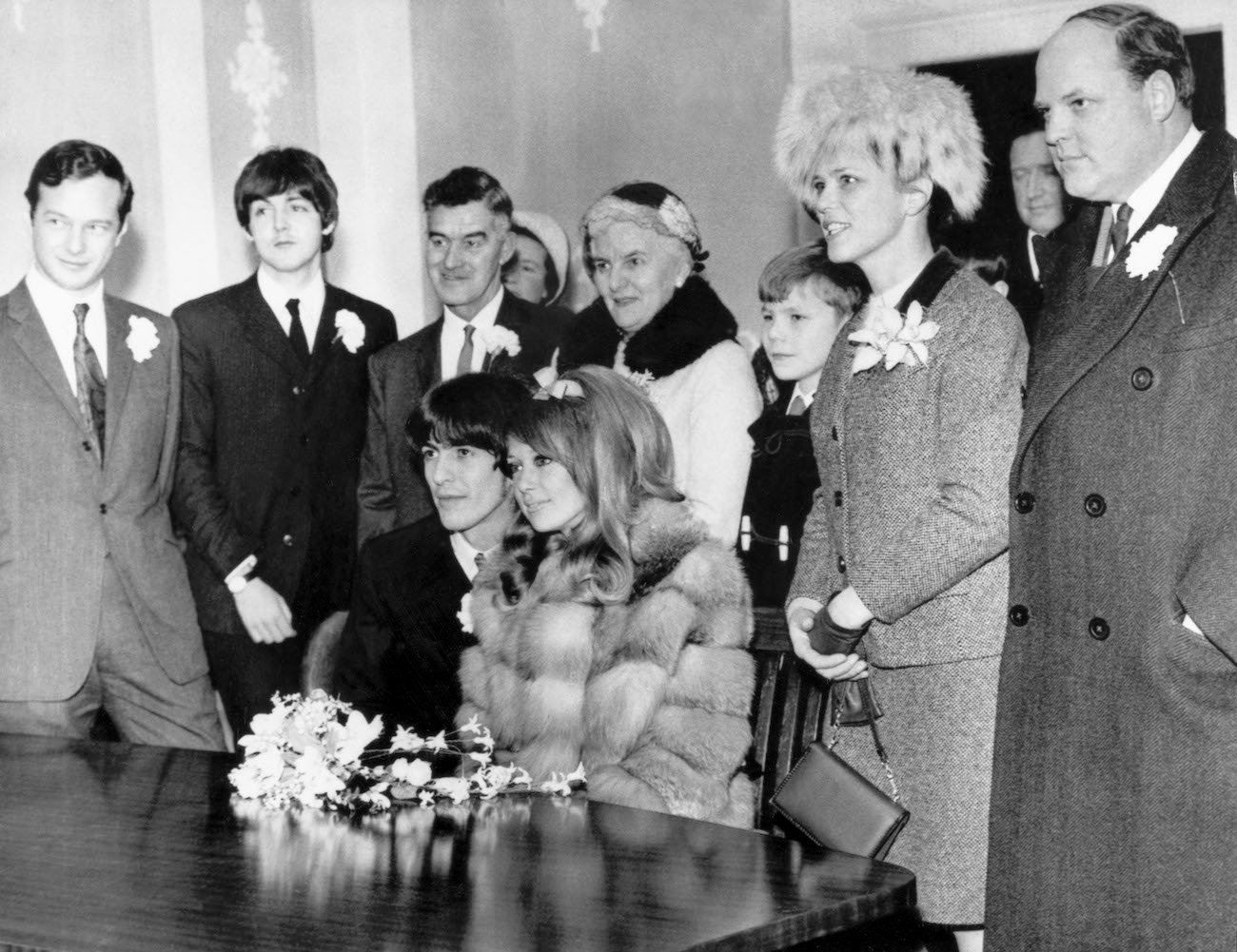
George Harrison’s Mother Was Glad Her Son Wasn’t Just Another ‘Sheep’
George Harrison‘s mother, Louise, was proud that her son wasn’t just another “sheep.” Once George’s musical abilities started emerging, she encouraged him to practice. Louise even gave moral support to her son whenever he grew frustrated during late-night practice sessions.
Without Louise, rock ‘n’ roll might not have gotten one of its best guitar players.

The important life lessons George Harrison’s mother taught him
George’s parents gave him unconditional love. Harold Harrison taught his children good work ethics and to be valuable members of society. Meanwhile, George’s mother taught him and his three siblings to be humble and kind, but most importantly, to pursue their dreams and always crave knowledge.
Although the Harrisons didn’t have much money, Louise always “made sure we knew we weren’t peasants, that we came from educated stock and had great potential in life,” George’s sister, Louise, told Joshua M. Greene in Here Comes The Sun: The Spiritual And Musical Journey Of George Harrison. “She taught us to think, to question things, to always be kind, never kowtow to big shots or lord over the lowly.
“We were never to cringe in fear but neither were we to become bullies toward anyone. And we took care of one another. If there was only one apple, we’d each get a quarter.”
Louise instilled a thirst for knowledge in George. That’s likely why she allowed him to get a guitar and encouraged him to practice so much.
George’s mother was glad he wasn’t just another ‘sheep’
When Geoge was little, his performance skills started coming out. He liked putting on shows for his family. Greene wrote, “One of George’s earliest memories was standing on a leather stool and singing folksinger Josh White’s ‘One Meatball’ to his family’s great delight.”
“He had these animal puppets,” his sister said, “and he’d do skits with them for us. He was funny and outgoing and the family doted on him. He had fun growing up and was always the center of attention.”
When George was 10, a school friend offered to sell him a beginner’s guitar. He asked his mother for the money, which she gladly gave him. His father then arranged lessons for him. George showed his mother his new skills.
“The instrument’s cheap wooden neck bent, and his fingers bled from pushing down on the strings,” Greene wrote. “I’ll never learn this,” George said. “You will, son,” Louise encouraged. “Just keep at it.” Greene continued, “She sat up with him until he quit, teary-eyed, at two o’clock in the morning. He looked at the toy instrument and chafed.”
“You don’t understand about guitars, do you, Mum,” George said. “No,” she admitted, “but if you stick to it I’m sure you’ll make it. I’ll help you buy a new guitar.”
Eventually, George became good at guitar and dressed like a teddy boy. His father didn’t like it, but George’s mother was there to support her son again.
In Harrison, Mikal Gilmore wrote, “When Harry Sr. expressed concern about this rebellious appearance, George’s mother supported her youngest son’s boldness. ‘There’s more than enough sheep in this life,’ she told her husband. ‘Just let the boy be.'”
His mother encouraged him to pursue his dreams, but his father grew concerned
George’s mother encouraged him to pursue his dreams and do what he liked.
He said, “My mum did encourage me. Perhaps most of all by never discouraging me from anything I wanted to do… If you tell kids not to, they’re going to do it in the end anyway… They let me stay out all night and have a drink when I wanted to.”
Meanwhile, his father grew increasingly concerned, especially once George left school. Greene wrote that Harold “knew the value of a solid job and, despite having offered some initial encouragement, balked at his son’s growing interest in music.
“If all else failed, Harold reasoned, maybe George could become an electrician and open a repair shop with his brothers. His Christmas gifts to 12-year-old George included a set of electrical tools. The war had taken its toll, and screwdrivers were what a sane man gave his youngest son, something dependable.”
George interviewed with the Youth Employment Center and became an apprentice electrician at Blackler’s shop for 1 pound, 50 pence a week. However, he hated it. “At Blackler’s, he barely did his work, preferring darts in the basement while waiting for the day to end so he could race home to play his guitar,” Greene wrote.
Thankfully, George joined The Quarrymen (later The Beatles) shortly after. Although his father meant well, George’s mother was the one who’d helped him get there.


